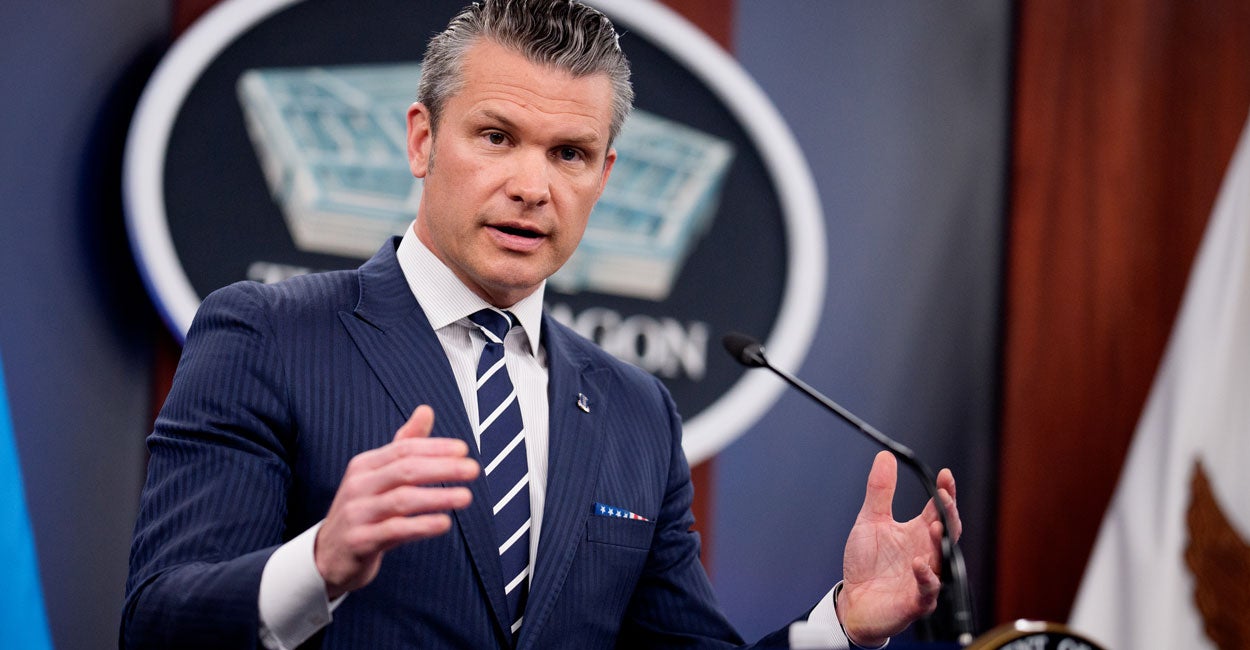


Secretary of Defense Pete Hegseth bashed the corporate media for “searching for scandals” following the U.S. attack on three Iranian nuclear sites.
“But searching for scandals, you miss historic moments,” Hegseth said Thursday morning during a press conference at the Pentagon, during which Hegseth praised President Donald Trump for his leadership at the NATO summit on Wednesday, and for green lighting the attack on Iran’s nuclear program.
Hegseth specifically criticized CNN, MSNBC, and The New York Times for “fawning coverage of a preliminary assessment” from the Defense Intelligence Agency, the Pentagon’s intelligence arm, that suggested the U.S. strikes on Iran’s Fordo, Natanz, and Isfahan nuclear sites did not eliminate key parts of Iran’s nuclear program.
CNN reported that Saturday’s strikes on Iran’s nuclear sites did not eliminate “core components” of Iran’s nuclear program and likely only delayed the program by several months. The New York Times similarly reported that the strikes delayed Iran’s nuclear program, but did not destroy Iran’s underground nuclear facilities.
Hegseth stressed that the DIA report was “preliminary” and “points out that it’s not been coordinated with the intelligence community at all,” adding there is “low confidence in this particular report. It says in the report there are gaps in the information.”
The attack over the weekend on Iran’s nuclear sites was a success, Hegseth said, noting “there are so many aspects of what our brave men and women did that, because of the hatred of this press corps, are undermined because your people are trying to leak and spin that it wasn’t successful. It’s irresponsible.”
The bottom line, according to the defense secretary, is “President Trump directed the most complex and secretive military operation in history, and it was a resounding success resulting in a ceasefire agreement and the end of the 12-day war.”
The DIA report was “leaked because someone had an agenda to try to muddy the waters and make it look like this historic strike wasn’t successful,” Hegseth told the press before citing a number of assessments on the success of the U.S. attack on Iran’s nuclear sites.
On Wednesday, CIA Director John Ratcliffe said, “CIA can confirm that a body of credible intelligence indicates Iran’s Nuclear Program has been severely damaged.”
The Israel Atomic Energy Commission said the “U.S. strike on Fordo destroyed the site’s critical infrastructure and rendered the enrichment facilities inoperable.”
Institute for Science and International Security President David Albright assessed the U.S. attack on Iran’s nuclear sites, saying, “Israel’s and U.S. attacks have effectively destroyed Iran’s centrifuge enrichment program. It will be a long time before Iran comes anywhere near the capability it had before the attack.”
Director of National Intelligence Tulsi Gabbard called the operation a “resounding success,” adding that the U.S. “missiles were delivered precisely and accurately, obliterating key Iranian capabilities needed to quickly assemble a nuclear weapon.”
Chairman of the Joint Chiefs of Staff Gen. Dan Caine spoke alongside Hegseth at Thursday’s press conference and said while the military leaves the assessment of the success of an operation to the intelligence community, five facts points to the mission’s success.
“First, that the weapons were built, tested, and loaded properly,” Caine said of the bombs dropped on Iran’s nuclear sites.
“Two,” Caine continued, “the weapons were released on speed and on parameters. Three, the weapon’s all guided to their intended targets and to their intended aim points. Four, the weapons functioned as designed, meaning they exploded. … And we know that the trailing jets saw the first weapons function and the pilot stated, quote, ‘This was the brightest explosion that I’ve ever seen.’”
